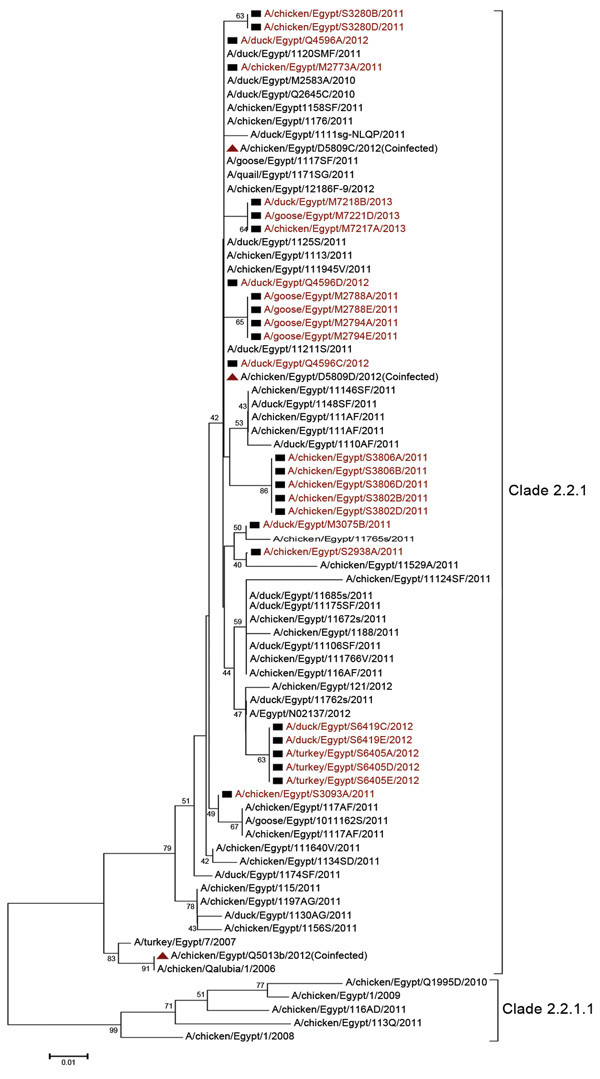Volume 20, Number 4—April 2014
Research
Active Surveillance for Avian Influenza Virus, Egypt, 2010–2012
Figure 4

Figure 4. . . Phylogenetic tree of the hemagglutinin gene of influenza A(H5N1) viruses from Egypt, 2010–2012. Squares and red text indicate viruses that were isolated and sequenced as part of the study. Black text indicates sequences available on GenBank from previous years or other groups. Triangles indicate co-infection with influenza virus subtypes H5N1 and H9N2. Scale bar indicates phylogenetic distance (1 base substitution/100 positions).
Page created: March 12, 2014
Page updated: March 12, 2014
Page reviewed: March 12, 2014
The conclusions, findings, and opinions expressed by authors contributing to this journal do not necessarily reflect the official position of the U.S. Department of Health and Human Services, the Public Health Service, the Centers for Disease Control and Prevention, or the authors' affiliated institutions. Use of trade names is for identification only and does not imply endorsement by any of the groups named above.